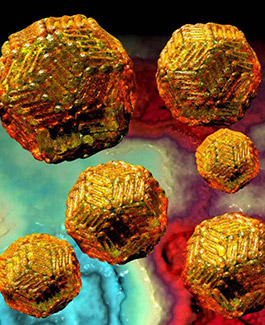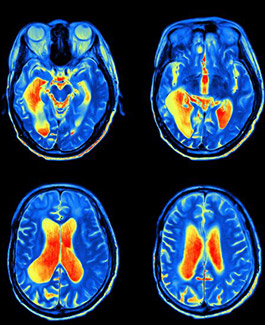Delivering cutting-edge research with impact
We are a world-class research facility focusing on the etiology and pathomechanisms of Myalgic Encephalomyelitis/Chronic Fatigue Syndrome (ME/CFS) and Long Haul COVID.
Our research is focused towards using the unique pathomechanism markers we have identified to develop a screening/diagnostic test and pharmacotherapeutic interventions to improve the health and wellbeing of individuals.
Focus areas

Ion channel research

Immunology

Long Haul COVID

ME/CFS

Neuroimaging

Epidemiology and health economics

Disability and NDIS
Ion channel research
- The NCNED is the first to have developed a whole-cell, patch-clamp technique on isolated NK cells from ME/CFS patients to characterise ion channels function.
- The NCNED research team has identified a loss of TRPM3 ion channel function to be associated with ME/CFS.
- Using flow cytometry techniques, the impaired TRPM3 ion channel has been reported to be involved in immune system changes, characteristics of ME/CFS patients. These new world-first findings establish ion channels as prognostic markers and/or potential therapeutic target for ME/CFS .
- The NCNED research team is currently undertaking pharmaceutical investigations for benefiting ME/CFS patients by restoring ion channels function impacting the immune system.
Experts: Professor Sonya Marshall-Gradisnik and Dr Natalie Eaton-Fitch
Researchers: Etianne Martini Sasso, Chandi Magawa, Viktória Tölygesi
Immunology
NCNED is the first to identify longitudinal changes in immune cells and their functional changes with ion channels that mediate calcium entry into cells.
Experts: Professor Sonya Marshall-Gradisnik and Dr Natalie Eaton-Fitch
Researchers: Etianne Martini Sasso, Chandi Magawa, Viktória Tölygesi
Long Haul COVID
Our research focuses on Long Haul COVID (post COVID condition) as there is considerable overlap with ME/CFS. We are investigating the clinical presentation of this illness with the aim to better define the case definition of Long Haul COVID.
NCNED research also explored the role of ion channel function and calcium signaling in the pathomechanisms of this illness.
Experts: Professor Sonya Marshall-Gradisnik and Dr Natalie Eaton-Fitch
Researchers: Etianne Martini Sasso, Rebekah Maksoud
NCNED
NCNED is investigating illness presentation and the quality of life of ME/CFS in the hope to provide greater insight into the prognosis of this illness.
Experts: Professor Sonya Marshall-Gradisnik, Dr Natalie Eaton-Fitch, Associate Professor Leighton Barnden, and Dr Kiran Thapaliya
Researchers: Etianne Martini Sasso, Chandi Magawa, Breanna Weigel, Rebekah Maksoud, Stanley du Preez
Neuroimaging
NCNED is the first to report:
- a reduction in white matter in the brainstem and a compensatory increase in white matter in the cortex – the action part of the brain
- raised activity in critical brain regions but decreased communication between them resulting in recruitment of more brain regions to perform a cognitive task
- correlation between the information potential in brain activity and measures of physical and mental wellbeing.
Our focus now is to investigate differences in brainstem function in ME/CFS, within an important network of small centres in the brainstem called the reticular activation system. This system influences arousal levels of the brain, the sleep-wake cycle, learning, memory and problem solving.
Expert: Dr Kiran Thapaliya and Associate Professor Leighton Barnden
Epidemiology and health economics
In collaboration with the Centre for Applied Health Economics, NCNED has investigated and continues to investigate epidemiological and demographical data of ME/CFS patients in Australia. NCNED is undertaking health economics investigation in collaboration with the Centre and patients from across Australia.
Experts: Dr Natalie Eaton-Fitch
Researchers: Breanna Weigel
Disability and NDIS
NCNED is investigating illness presentation and the quality of life of ME/CFS in the hope to provide greater insight into the prognosis of this illness.
Assessment of disability over time provides avenues for NCNED to explore the impact of permanency of ME/CFS.
Expert: Professor Sonya Marshall-Gradisnik
Researchers: Breanna Weigel
Our researchers
Meet our team of researchers, support staff and collaborators who are driving our research success at NCNED.
PhD Study
Study alongside experts in your field
PhD and research candidates play an important role in our research efforts at NCNED.
Griffith graduates can attain advantageous professional experience as they complete their research degree and support our aim to transform the overall health and wellbeing of our population.
Find all you need to know about research study at Griffith, from degrees to scholarships and how to apply.
HDR scholarships
PhD and research degree scholarships can cover tuition fees, overseas health cover, living allowances paid as stipends and relocation allowances.
Some scholarship opportunities will also be offered throughout the year for particular research areas.
Contact details
- Phone
- (07) 5678 9283
- ncned@griffith.edu.au
- Media enquiries
- media@griffith.edu.au
- Location and postal address
- Mailbox 68, Menzies Health Institute Queensland
- G40 Griffith Health Centre, Level 8.86
- Griffith University, Parklands Drive
- Gold Coast QLD 4222